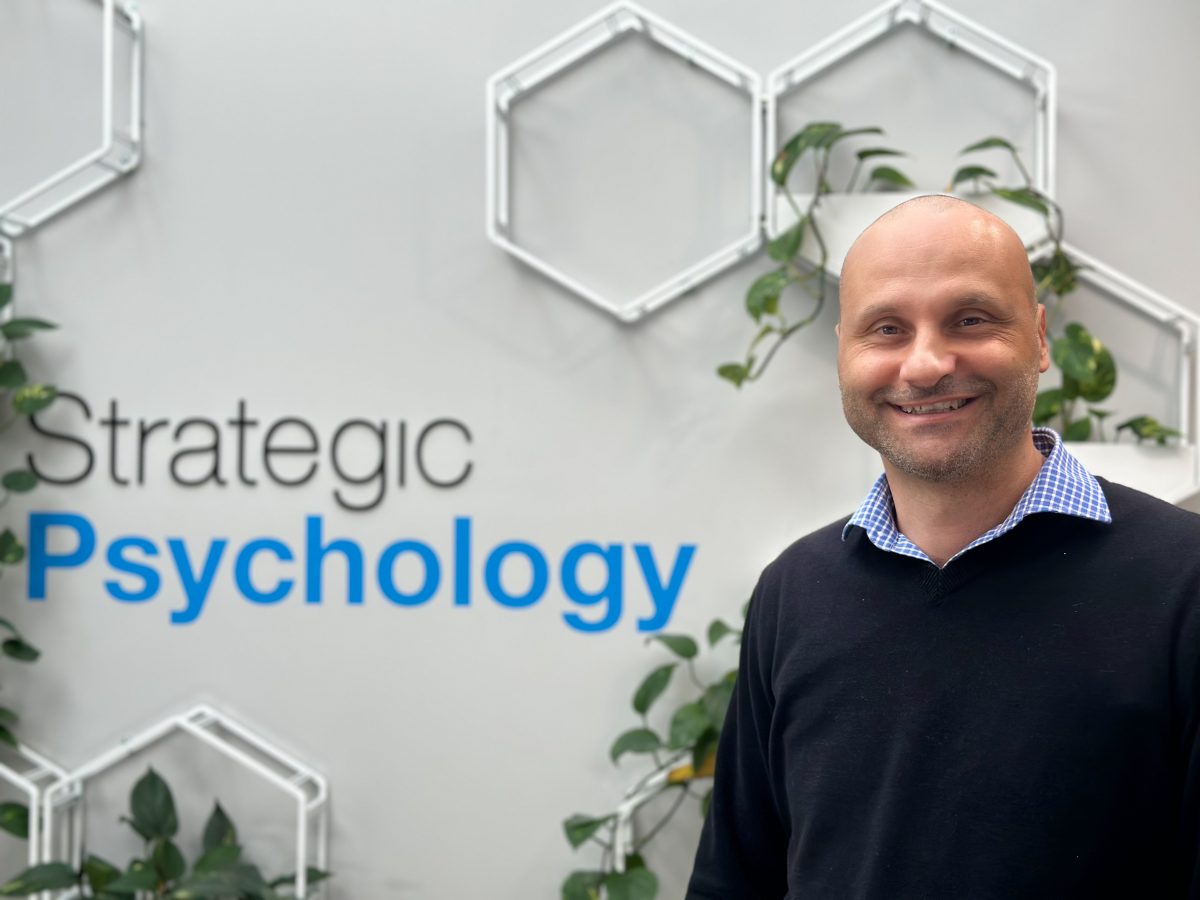
Nesh Nikolic says we can be available and supportive of our children without shielding them from life’s challenges. Photo: Strategic Psychology.
The old saying about child-rearing will always be true: children don’t come with manuals.
Even if such a mythical document existed, it would need to be unique to each child and change almost as we read it to account for every imaginable variable.
A better parenting approach is self-regulation, modelling and flexibility according to Nesh Nikolic, managing director and a clinical psychologist at Strategic Psychology.
He says while modern day factors such as social media might play a part in our children’s emotional and psychological wellbeing, the fundamental challenges they face remain the same.
“The environment may have changed but generally speaking, we’re still experiencing the same condition – the human condition,” he says.
“We’ve always struggled with disappointment and yes there might be more exposure to it due to, for example, social media. When I look at Instagram feeds, I’ll always be disappointed in my level of attractiveness, achievement, et cetera because I’m only seeing the top one per cent, the highlights of people’s lives.”
Social media, anxiety around the pandemic, climate change, or any other modern day or age-old factors can contribute to a child’s emotional distress.
But shielding our children from life’s challenges isn’t the answer.
Parents need to expose their children to a level of adversity that’s safe and appropriate.
“It’s potentially hard for a parent to meet their child’s emotional needs, hear them and acknowledge the distress, marginalisation or bullying they’re experiencing and be fundamentally available and supportive of that child while also holding to the importance of continued school attendance so that an avoidance pattern isn’t developed,” Nesh says.
“The challenge here is a child is naturally going to up the stakes. That might be increased crying, which will potentially make the parent more distressed. The parent will want to alleviate the child’s distress and their own distress by saying ‘ok, maybe this one time you can take the day off’.
“A child can try to avoid social difficulty in many ways, too. They might say they’re unwell, they have a sore tummy, they’re feeling anxious. It can be hard for a parent to decode.”

A parent’s own emotional regulation is a powerful tool in supporting children, particularly in emotionally charged situations. Photo: File.
One helpful factor for parents is understanding that it’s possible for two things to be true. It’s normal to want to avoid social difficulty and it’s functionally imperative to continue to go to school.
“Sometimes we can accommodate children to the point that sets expectations that can never be met. Their wants increase to the point that they struggle whenever their wants are not met,” he says.
“We need to describe that middle point where we can hear and accept a child’s needs, but differentiate between needs and wants. It’s in there where boundary and expectation-setting are helpful.”
A parent’s own emotional regulation is a powerful tool in supporting children, particularly in emotionally charged situations.
Nesh uses an example familiar to most households with children.
“We’re trying to rush out the door in the morning and firing instructions at our children. ‘Eat your cereal, brush your teeth, grab your bags, where are your shoes, hurry up’,” he says.
“Research demonstrates if a parent can slow down and regulate their own stress, they’ll get better results from their child.”
If this scenario sounds all too familiar, you might be worried you’ve done damage to your child.
Nesh says this is 100 per cent not the case.
“By no stretch of the imagination is it a blame game. Children are incredibly resilient. Even as adults, we can change.
“There’s no perfect response, no perfect parent. There’s no damage created by modelling stress, anger, frustration. We’re working towards increasing psychological flexibility and functionality over rigidity and psychological avoidance of distress.
“If we continually meet children’s desires, then we’re robbing them of an opportunity to learn acceptance, tolerance, self-soothing and the capacity to not have their way and remain psychologically regulated.
“That’s such an important life skill.”
For more information or help promoting strong relationships based on love, effective communication and mutual respect, visit Strategic Psychology.





















